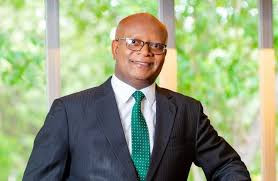

Fintech is an opportunity to broaden market access: Matsekete
OLD Mutual Zimbabwe Limited chief executive officer Sam Matsekete says the group has identified financial technology (fintech) as an opportunity to broaden access and participation across markets.
The adoption of fintech as a key area for growth has seen the group registering massive growth with its fintech business, O’mari.
In its financial half-year report for the period ended June 30, 2025, Old Mutual Zimbabwe Limited’s parent company, Old Mutual Limited (OML), reported that its local business had sustained the strong growth from its fintech wallet, O’mari, to 1,4 million customers. The platform was launched in May 2023.
OML, a South African-headquartered financial services group, reported robust growth in key revenue drivers for its local subsidiary’s revenue from the O’mari platform.
O’mari is the leading fintech business of Old Mutual Zimbabwe, offering O’mari Wallet, O’mari FoodCare, O’mari HomeCare, and O’mari SchoolCare.
“We see fintech as more of an opportunity than a threat, frankly,” Matsekete told NewsDay Business.
“We’ve made some quite significant investments in fintech through our initiative called Next 176, which is based in South Africa and has invested in fintech ventures.”
He said Zimbabwe was a good example of how fintech solutions could transform service delivery and foster innovation.
“I think Zimbabwe is an excellent example of where we’re both scaling a fintech in the form of O’mari and also incubating the fintechs that are emerging,” Matsekete said.
“We are prioritising efforts in digitalisation. I would like to believe that it’s starting to show in the way that we serve our customers and the way that we extend our services.”
He emphasised that technology had become a key instrument for promoting financial inclusion, particularly in economies where informality dominates.
In Zimbabwe, 76,1% of the economy is informal, generating over US$14 billion annually. It is estimated that US$2,5 billion is circulating in the informal economy.
Matsekete said the group could further reach the unbanked by leveraging fintech.
“So, one of our underlying themes is to promote financial inclusion. And with an economy that is informalised to a very large extent, it becomes important to use fintech to reach more customers affordably and reliably,” he said.
“That way, you bring more people into the fold. So, fintech is a tool for achieving a greater measure of financial inclusion. It would be one of the things that we are working towards.”
Matsekete added that, beyond technology, promoting formalisation, policy predictability, and long-term savings were also essential for continued stability and growth.
“The theme of formalisation and promoting formality, if you like, bodes well for an enhanced role of financial services. It’s not an overnight exercise, and it’s not a function of just one party’s efforts,” Matsekete said.
“But, it is one where we, in the private sector, are also challenged to create innovative products and services that will bring the informal sector into the mainstream.”
He commended the government’s ongoing efforts to simplify licensing frameworks and improve the ease of doing business.




